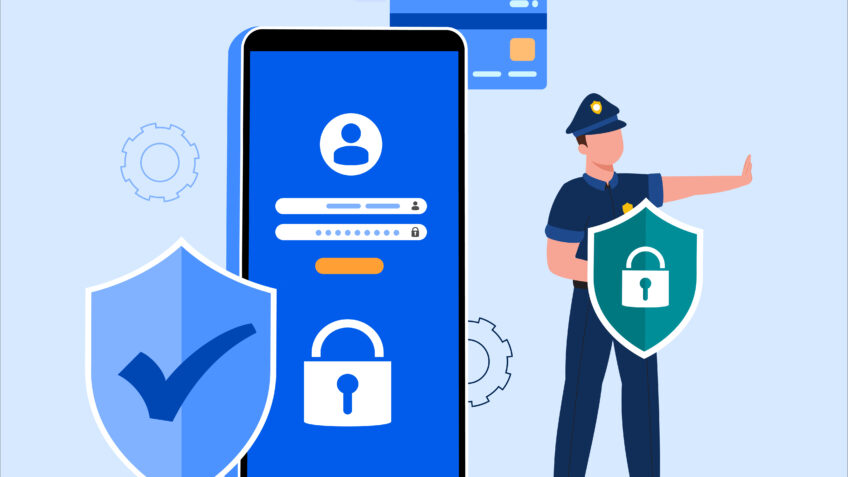In today’s digital world, everything from work to shopping to social interactions happens online. While this offers remarkable convenience, it also comes with risks. Data breaches, identity theft, and cyber-attacks are common headlines, reminding us that protecting our online privacy is essential. This guide provides a comprehensive look at internet security tips designed to keep you and your data safe.
1. Strong Passwords Are Your First Line of Defense
The most fundamental step to secure your online accounts is creating strong, unique passwords for each platform. Many people use the same password across multiple accounts, which makes it easier for hackers to gain access. Here’s how to make sure your passwords are robust:
- Use a combination of letters, numbers, and symbols: Avoid obvious choices like “password123” or your birthdate.
- Create unique passwords for each platform so that if one account is compromised, others remain secure.
- Consider using a password manager to create and keep complicated passwords. Your passwords can be safely stored with services like LastPass or Bitwarden.
2. Enable Two-Factor Authentication (2FA) Whenever Possible
Two-factor authentication (2FA) adds an extra layer of security by requiring two forms of identification: your password and a second factor, such as a text message or email code. This means even if a hacker has your password, they won’t easily access your account without the second form of verification.
- Check for 2FA options on all critical accounts like email, banking, and social media.
- Use an authenticator app like Google Authenticator or Authy for more secure code generation than text messages.
3. Be Cautious with Public Wi-Fi
Free public Wi-Fi can be tempting, especially when traveling or working outside. However, these networks are often unsecured, allowing hackers to intercept your data. If you rely on cheap internet options like free public Wi-Fi, take extra precautions to protect your data, as these networks are often unsecured and vulnerable to hackers
- Avoid accessing sensitive information like banking accounts or email.
- Use a VPN (Virtual Private Network) to encrypt your data, making it difficult for hackers to intercept.
- Forget the network once you’re done, so your device doesn’t automatically reconnect in the future.
4. Use a Reliable VPN
A VPN, or Virtual Private Network, is a valuable tool for privacy-conscious individuals. VPNs create a secure, encrypted connection between your device and the internet, masking your IP address and making it difficult for anyone to track your online activities.
- Select a trustworthy VPN provider that doesn’t log your activity. Popular options include NordVPN, ExpressVPN, and CyberGhost.
- Avoid free VPNs, because they may record your information or display advertisements that jeopardize your privacy.
5. Stay Wary of Phishing Scams
One of the most prevalent types of cybercrime is phishing. They often come as emails, messages, or pop-ups that look legitimate, but they’re designed to trick you into providing personal information like passwords or financial data.
- Check email addresses carefully and be wary of minor misspellings or extra characters.
- To view the URL, hover over links. before clicking. A reputable site will use a secure “https” address.
- Don’t download attachments from unknown or unexpected sources, as these may contain malware.
6. Keep Your Software Updated
Updates aren’t just about getting new features—they often contain crucial security patches that protect against vulnerabilities. Many cyber-attacks exploit outdated software to gain access to your device or data.
- Enable automatic updates on your devices and applications so you’re always protected with the latest security measures.
- Update all apps regularly, especially those that handle sensitive information like banking or social media.
7. Manage Your Privacy Settings on Social Media
Social media platforms are a treasure trove of personal information, making them prime targets for hackers. Be cautious about what you share and adjust your privacy settings to limit who can see your information.
- Restrict who can see your posts and personal details on platforms like Facebook and Instagram.
- Be mindful of location sharing and turn off geo-tagging for sensitive posts.
- Avoid sharing personal information publicly, like your home address, phone number, or family details.
8. Monitor Your Digital Footprint
Your digital footprint is the trail of information you leave behind when you’re online, from social media profiles to online purchases. Keeping track of your footprint is essential for maintaining privacy and reducing the risk of data theft.
- Regularly search your name online to see what information is publicly available.
- Delete unused accounts and review privacy settings on the accounts you keep.
- Set up Google Alerts for your name to stay informed if your personal data appears unexpectedly online.
9. Use Antivirus and Anti-Malware Software
Antivirus and anti-malware software are essential tools in your internet security toolkit. These tools assist in identifying and stopping viruses, spyware, and malware that could jeopardize your data or device.
- Set up trustworthy antivirus software on every device, including mobile. Norton, McAfee, and Bitdefender are popular choices.
- Run regular scans to detect any suspicious files or activities.
- Update your antivirus software to ensure it can tackle the latest threats.
10. Backup Important Data
Backing up your data is critical for recovery in case of a cyber-attack, hardware failure, or accidental deletion. Regular backups ensure that you won’t lose essential files or sensitive information.
- Use both cloud and physical backups (like an external hard drive) to ensure data redundancy.
- Schedule automatic backups so you never forget to save your important data.
- Encrypt your backups, especially if they contain sensitive information, for an extra layer of protection.
11. Be Careful with App Permissions
Many apps request permissions that aren’t necessary for their functionality, and these permissions can compromise your privacy.
- Review app permissions before installation, especially for apps that request access to sensitive data or features like your microphone or camera.
- Regularly check permissions on apps you already have installed and revoke those that seem excessive.
- Avoid installing apps from unknown sources outside official app stores to reduce the risk of malware.
Final Thoughts
Online security is not a one-time task; it requires continuous effort. By staying aware of the latest threats and practicing these security tips, you can significantly reduce the risk of becoming a victim of cybercrime. Remember, the internet is a powerful tool, and with a proactive approach to privacy, you can enjoy all its benefits while staying secure.






